Ambassadors
ACEAP 2018 Ambassadors
JANUARY
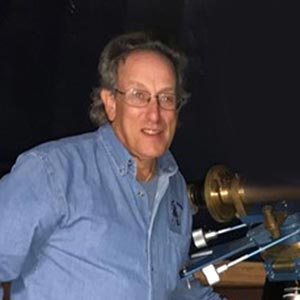
Joel Goodman
Joel Goodman is an amateur astronomer and informal educator in Howard County, Maryland. Since retiring from 35 years as a family dentist in 2012, Joel has transformed a lifelong passion and devoted himself to promoting and teaching astronomy and space sciences. In 1997, when parents and students called for more after a star party showing off Comet Hale-Bopp, Joel founded the Celestial Searchers, an after-school astronomy club for grades K-6. In 2000, he joined the Howard Astronomical League (HAL) and dedicated the next 15 years to spearheading efforts to build an observatory for the club’s 1930’s handcrafted 12-inch f/6 Newtonian. HAL’s publicly accessible observatory and library opened in 2015, and Joel serves as its Director and Outreach & Events Coordinator. He produces and presents live planetarium shows at the nearby Robinson Nature Center and serves on the Science Advisory Committee for county schools. As chair of the county’s Recreation & Parks Advisory Board, Joel has been a strong advocate for light pollution education. For the past five years, he has been a Project ASTRO facilitator in area elementary schools, and in 2014, he was part of the initial group of NSF/NRAO/UNC/UChicago/ASP sponsored Skynet Junior Scholars leaders trained at Yerkes. The Skynet web portal grants secondary students access to a worldwide network of telescopes, including the PROMPT’s at Cerro Tololo. Joel is excited to bring the knowledge gained during his ACEAP expedition back home to continue to expand upon the Skynet model while promoting the science classroom of the future with increased utilization of resources and data sets from remote locations.
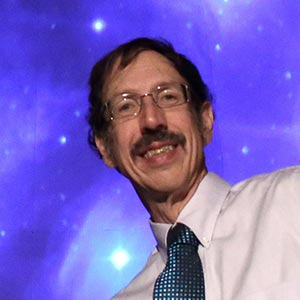
Patrick Hanrahan
Pat Hanrahan is Director of the Mt. Hood Community College Planetarium in Gresham, Oregon where he produces all of their planetarium shows as well as special school shows for K-12 students (see www.mhcc.edu/planetarium). He measures his success based on the amount of praise that he receives from his youngest attendees. Pat also initiated, planned, and designed the planetarium’s new digital projection system. In addition to running the planetarium, Pat teaches astronomy courses at Mt. Hood Community College where he received their 2014 Excellence in Teaching Award in June 2014. He previously taught astronomy at Clackamas Community College, and at Portland State University. Sharing his love of the stars is one of his passions. Seasonally, he has served as Resident Astronomer at Sossusvlei Desert Lodge in Namibia to show guests the treasures of the southern sky (2011-2015). At the request of the lodge’s parent company (&Beyond), he was sent to train their rangers about the night sky in Namibia, Botswana, and South Africa. In Oregon, he is a member of the Rose City Astronomers and shares his 15″ telescope at star parties. He has also served as the Observatory Director of the Haggart Observatory at Clackamas Community College in Oregon City Oregon. Pat’s hobbies include hiking and photography which includes astrophotography. He uses most of his night pictures in teaching and some of his pictures have been published in in publications of the Rose City Astronomers and in The Southern Observer’s Handbook by Leo Cavagnaro.
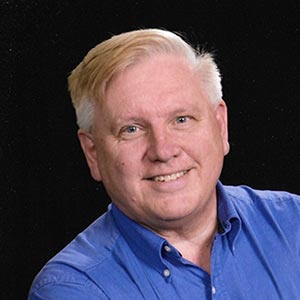
Jack Howard
Jack Howard became interested in astronomy when Sputnik I went into orbit, and the race to the Moon began. While studying physics in college, he spent a month at Kitt Peak National Observatory doing variable star research with his mentor. After a 20-year career in business, Jack returned to the classroom in 1995, teaching math and physics. He started the astronomy program at Rowan-Cabarrus Community College and became the first full-time instructor in the program, while earning a master’s degree in astronomy from James Cook University. Although retired from full-time teaching, he actively continues teaching astronomy, physics, and math at community colleges in the Charlotte (NC) area and serving on advisory committees at RCCC, where he was a 2003 recipient of the Excellence in Teaching award. For the last two years, Jack has also served as a volunteer outreach educator in NASA’s Solar System Ambassador program. He is an active member of the Charlotte and Rowan County astronomy clubs. Jack’s hobbies – when time allows – include instrumental music, mostly piano and clarinet, and flying airplanes.
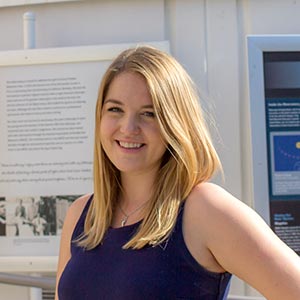
Rebecca Ljungren
Rebecca Ljungren is a professional Astronomy Educator at the Smithsonian National Air and Space Museum and the Phoebe Waterman Haas Public Observatory. She seeks to inspire life-long learners through astronomy by having visitors observe astronomical phenomena, analyze data, and explore the lives of professional and amateur astronomers. At the Museum, Rebecca’s activities include developing and conducting innovative and hands-on astronomy programs for the public and groups, training educators, interns, and volunteers, bringing telescopes to public venues around DC like Astronomy on Tap, and developing exhibitions. She has spoken at the Winter Star Party and the Almost Heaven Star Party. Recently, Rebecca loved helping hundreds of thousands of people view the solar eclipse this past August 21st, especially students from DC schools. Rebecca is a “late-onset astronomer.” She fell in love with astronomy and astrophysics working part-time at the National Air and Space Museum while earning her bachelor’s degree in Art History from American University. Rebecca loved facilitating informal interactions so much that she went on to earn a master’s degree in Museum Education from The George Washington University, and then to a full-time position as an Astronomy Educator. Her broader academic interests include the intersections between science, gender, art, and society. Through her work, she advocates for a more inclusive and accessible experience within museums and in daily life.
ACEAP 2018 Ambassadors
JUNE
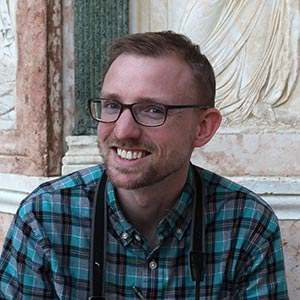
Stephen Case
Stephen Case teaches physics and astronomy at Olivet Nazarene University in Bourbonnais, Illinois. He is also the director of the Strickler Planetarium on campus, where he coordinates astronomy outreach for area schools and the general public. His monthly Skywatch column appears in the Kankakee Daily Journal, and his weekly radio segments on the night sky are distributed by Shine.FM to stations throughout the region. He is particularly interested in connecting people with the night sky as part of a shared and dynamic cultural heritage. In astronomy education, he focuses on questions of how our knowledge of the night sky has been developed over time. Stephen holds a Ph.D. in the history and philosophy of science from the University of Notre Dame and writes extensively on the history of astronomy. His first book, Making Stars Physical: the Astronomy of Sir John Herschel, is forthcoming this spring from University of Pittsburgh Press. His research has also appeared in Mercury, Annals of Science, and Historical Studies in the Natural Sciences. In particular, his work focuses on Victorian astronomers and their instruments and the early history of astrophysics. He is one of the organizers of the Biennial History of Astronomy Workshop held every other summer at the University Of Notre Dame, which draws scholars from around the world. His favorite observational targets include double stars, and he is eager to see the sights of the southern sky for the first time.
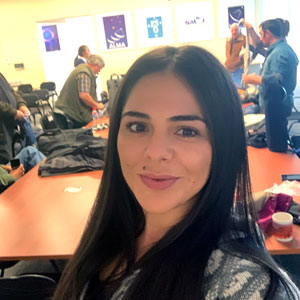
Yasmín Catricheo
Yasmín Catricheo is currently working at the Office of Education and Public Engagement at Associated Universities Inc. She is a physics educator from Chile. Of Mapuche origin, she is passionate about the teaching of science and more recently has focused in the area of astronomy. In her professional training program, she has participated in courses taught by astronomy faculty at the University of Concepción, and has earned a Master’s degree in Education from the University of Bío-Bío. Yasmín is also a member of the indigenous group “Mapu Trafun”, and she works closely with the Mapuche community to recover the culture and communicate the message of the Mapuche Worldview. In 2018 was selected to enjoy the Astronomy in Chile Educator Ambassador Program (ACEAP) founded by FSF.
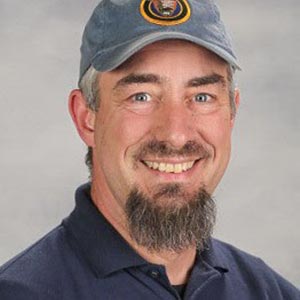
John L. Goar
John Goar earned his B.A. from the University of California, Berkeley in 1983. He teaches science at North Kitsap High School in Poulsbo, Washington. He is an amateur astronomer and a member of the Olympic Astronomical Society, serving as secretary on the Board of Directors. After building two Dobsonian telescopes, he completed observing programs to earn the Master Observer certificate in 2008 from the Astronomical League. John serves the Astronomical League as the Binocular Messier Program Coordinator and the Asteroid Observing Program Coordinator, as well as the website team. Starting in 2010, John has organized and led telescope programs in the summer at Hurricane Ridge, Olympic National Park. In eight years, nearly 8000 visitors have had the opportunity to view interesting objects through telescopes at his programs from dark skies. He also leads full moon hikes for the park. John was the 2016 winner of the George and Helen Hartzog Volunteer Service Award as the outstanding individual volunteer in the National Park Service. In 2017, John was awarded the Presidential Lifetime Achievement Award for his service in the parks. John’s interests in astronomy include observing deep sky objects, especially comets, asteroids, and galaxies. He is active in the effort to fight light pollution and is also active as an outreach volunteer visiting numerous area schools each year. This will be John’s first trip south of the equator.
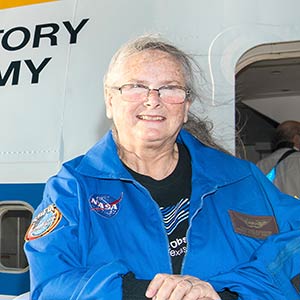
Eileen Grzybowski
Eileen Bross Grzybowski is a high school Astronomy & AP Biology teacher at Norman North High School, Norman, OK. Her interest in Astronomy began at an early age as she attended programs & classes in Astronomy for Young People at the American Museum Hayden Planetarium. She earned degrees in Biology (B.S.), Botany (M.S.) & has doctoral studies in Science Education. She has been a public school science teacher for 30 years. In 2004, she began teaching Astronomy & has sought professional development experiences to challenge her and to further her knowledge. As a result, she has participated in various programs including the Goldstone Apple Valley Radio Telescope project, (GAVRT) Astrobiology Secondary Science Experiences for Teachers (ASSET), Astronomy Research Based Science Education (ARBSE), flew on SOFIA as an Airborne Astronomy Ambassador in 2015, & is a member of UT’s EXES Astronomy Educator group. In her experience, nothing can replace a clear night sky to foster interest in Astronomy and to connect her local high school students with the wonders of the night sky. She uses authentic activities, projects, & various observing opportunities aligned to NGSS and OASS standards that encourage 3-D Learning to make K-12 students think & apply their knowledge. Eileen’s numerous outreach & education activities include speaking to the public & local Scouts about astronomy, leading trips to local observatories & hosting stargazing events. Eileen is very excited to be a part of the 2018 ACEAP cohort & is eager to share her experiences locally and outside her community.
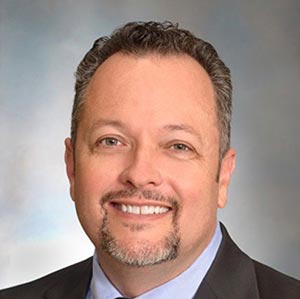
Kyle Jeter
Kyle Jeter, 2017 Broward County Teacher of the Year, has had a passion for Astronomy since he was a child. After graduating with a BS in Engineering Physics, and teaching Honors Physics for a number of years, Mr. Jeter found a way to share that passion with his students by creating a class of Honors Astronomy. The class quickly proved popular, and over 230 students per year enroll. Mr. Jeter went on to earn a Masters degree in Teaching and Learning from Nova Southeastern University and received National Board Certification. He was a presenter at the National Astronomy Teaching Summit and at the Broward Education Foundation’s Idea Expo. He has attended the University of Arizona’s Astronomy Camp and NSTA conventions in Boston and New Orleans. He is also active in the South Florida Amateur Astronomers Association and has served on the Education Advisor Board of the Frost Science Museum in Miami. Since 2005, he has been the Director of the Amazing Space and Science camp in Boca Raton. Mr. Jeter has won numerous awards including the FCEF’s Excellence in Education Award and was chosen to be in the first group of teachers in America to fly aboard the G-Force One aircraft to study the effects of microgravity. In addition, he is one of the founders of a high-altitude balloon project called Project Aquila, manages the Marjory’s Garden project at his school, Stoneman Douglas High School, and is a coordinator of the Broward County Drone League.
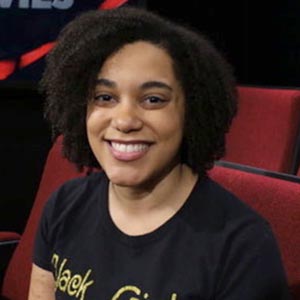
Moiya McTier
Moiya McTier grew up in a small coal-mining town in Pennsylvania, far enough from a large city that she had a clear view of the night sky, but she didn’t decide to pursue astronomy professionally until her sophomore year at Harvard College. At the same time, Moiya was learning from Harvard’s folklore department how to study people and tell their stories. Her college years were filled with struggles brought on by the weakness of her science and math background and rude awakenings about what it means to be a woman of color in STEM. After graduating in 2016, Moiya continued her education in the astronomy Ph.D. program at Columbia University. It was there, in a city with millions of people and plenty of opportunities to teach them about the universe, that Moiya realized her double training in scientific research and narrative storytelling gave her the tools necessary to be an effective science communicator. In the last two years, Moiya has given public astronomy talks at science museums, high schools, and several bars around New York City. She even started hosting a podcast called So You Think You Can Science, where she talks about what astronomers actually do with their time. When she’s not doing science or talking about it, Moiya spends her time making it easier for people like her to follow in her footsteps.
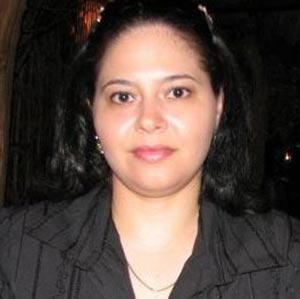
Samara Nagle
I am an astrophotographer who is very passionate about deep space photography. Sharing my photos on social media is how I get people interested in astronomy. I have a bachelor of Science Degree in computer science, and after receiving my master’s degree, I moved from Brazil to live in the United States. I work as a Project Assistant at an international law firm. I have had a lifelong interest in astronomy. As a child, my father would take me to farms in rural areas in Brazil, and I would see the night sky as I have never seen it before. As an adult, I take every opportunity to travel to dark sky locations to photograph the night sky and share my passion with others. The goal of my work is to inspire others to look up, be curious about the universe and educate themselves to preserve and protect the night sky so we can all continue to enjoy it. From my backyard observatory, I show and encourage people that it is possible to view and enjoy the night sky from urban, light-polluted skies. I dedicate most of my free time reading about astronomy and astrophotography techniques. I also enjoy using my 3D printer to make accessories for my telescopes and cameras. I co-administer a group on Facebook called Telescope Addicts; a group of more than 30.000 individuals from all over the world who share a passion for the universe. I am very excited and proud to be a part of the 2018 ACEAP cohort, and I can’t wait to share what I’ll learn in Chile on social media and my community.
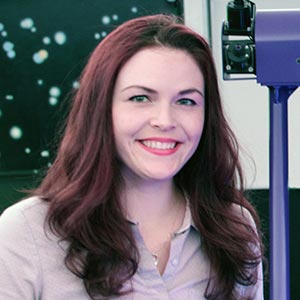
Tiffany Stone Wolbrecht
Tiffany is the Planetarium Lecturer at Ward Beecher Planetarium at Youngstown State University where she coordinates all programs for the over 15,000 annual public and school group guests. She also produces live planetarium content for audiences of all ages using research-based education methods. Tiffany enjoys working with other local institutes to organize larger scale outreach activities in her community and exploring the learning potential of planetariums in new and creative ways. Passionate about science education and outreach, Tiffany discovered her love for planetariums at the Edinboro University Planetarium where she worked while obtaining her Master’s of Education in Secondary Instruction. She previously earned her Bachelor’s of Science in Physics at Penn State University, The Behrend College, where she conducted research on exoplanets using emerging data from NASA’s Kepler mission. Tiffany is an active member in her regional planetarium community, the Great Lakes Planetarium Association. She works with the Mahoning Valley Astronomical Society to connect the public to amateur astronomy through star parties and programs teaching telescope basics. She also advocates for Cosmosquest, an online citizen science research center. She is known for channeling passion for fandoms like Harry Potter or Star Trek up to the night sky by creating planetarium shows linking elements of fiction to real and fantastical astronomy and for creating hands-on demos that engages students and aligns with current curriculum standards.
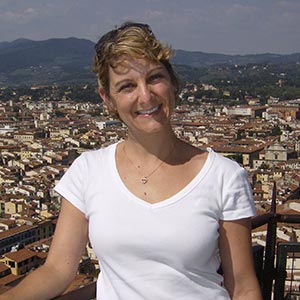
Nicolle Zellner
Nicolle’s interest in space began at a young age, staring out at the stars and planets in rural Wisconsin. Since then, she has worked on a space shuttle telescope mission (STS-67) as part of the data analysis team, and she has collected meteorites in Antarctica. She is currently a professor of physics at Albion College in Albion, MI, where she teaches introductory and advanced astronomy and physics courses. As the only astronomy professor on campus, Nicolle can teach up to 25% of every graduating class! Student projects include the popular astronomy video project; “People’s Choice Award” winners are highlighted on her personal webpage. Her passion for sharing the excitement of science, and astronomy, in particular, means Nicolle is often asked to speak at local and regional events and to give TV and other media interviews. In particular, as a strong advocate for the participation of women and girls in science, Nicolle has hosted or participated in multiple events with this focus. Public observing events are also part of her outreach activities; over 2000 people gathered on the campus’ Quad to view the partial solar eclipse in August 2017. As an active research scientist, Nicolle values the ability to communicate scientific results to students and others. NASA and the NSF currently fund her research into understanding the impact history of the Earth-Moon system and how those impacts affected the conditions for life on Earth. She studies lunar impact glasses to interpret the bombardment history of the Moon (and Earth), and a second project focuses on understanding how the chemistry of simple molecules is affected by impacts. Undergraduate students actively participate in these projects and present their results at regional and national meetings. For fun, Nicolle takes dance and Zumba classes and travels as often as she can!
